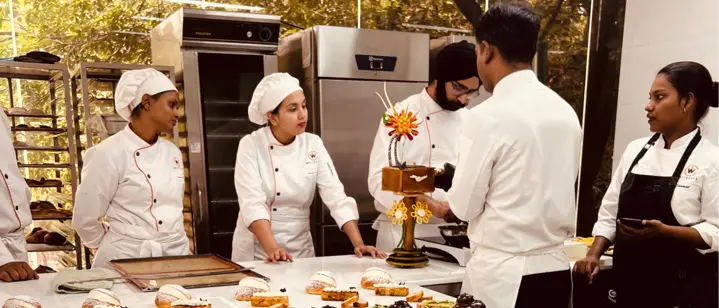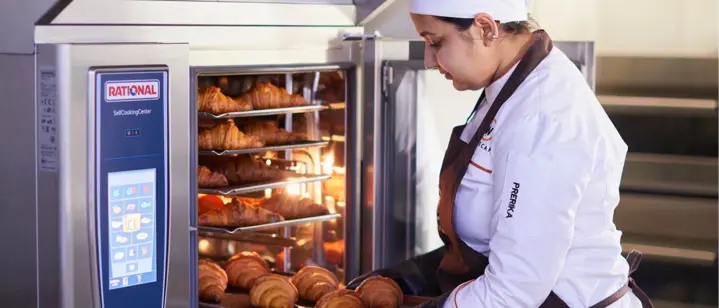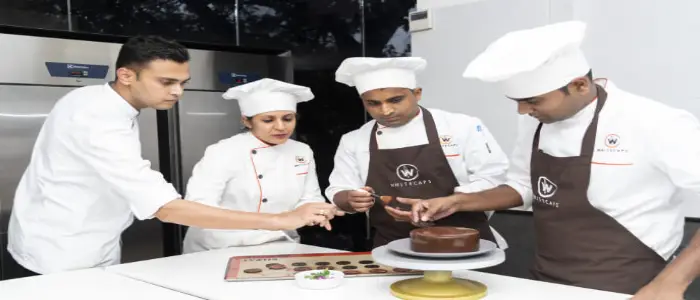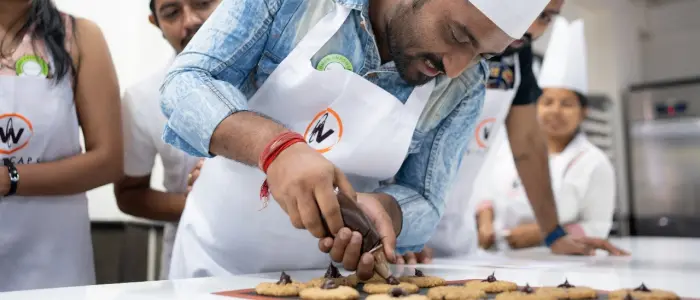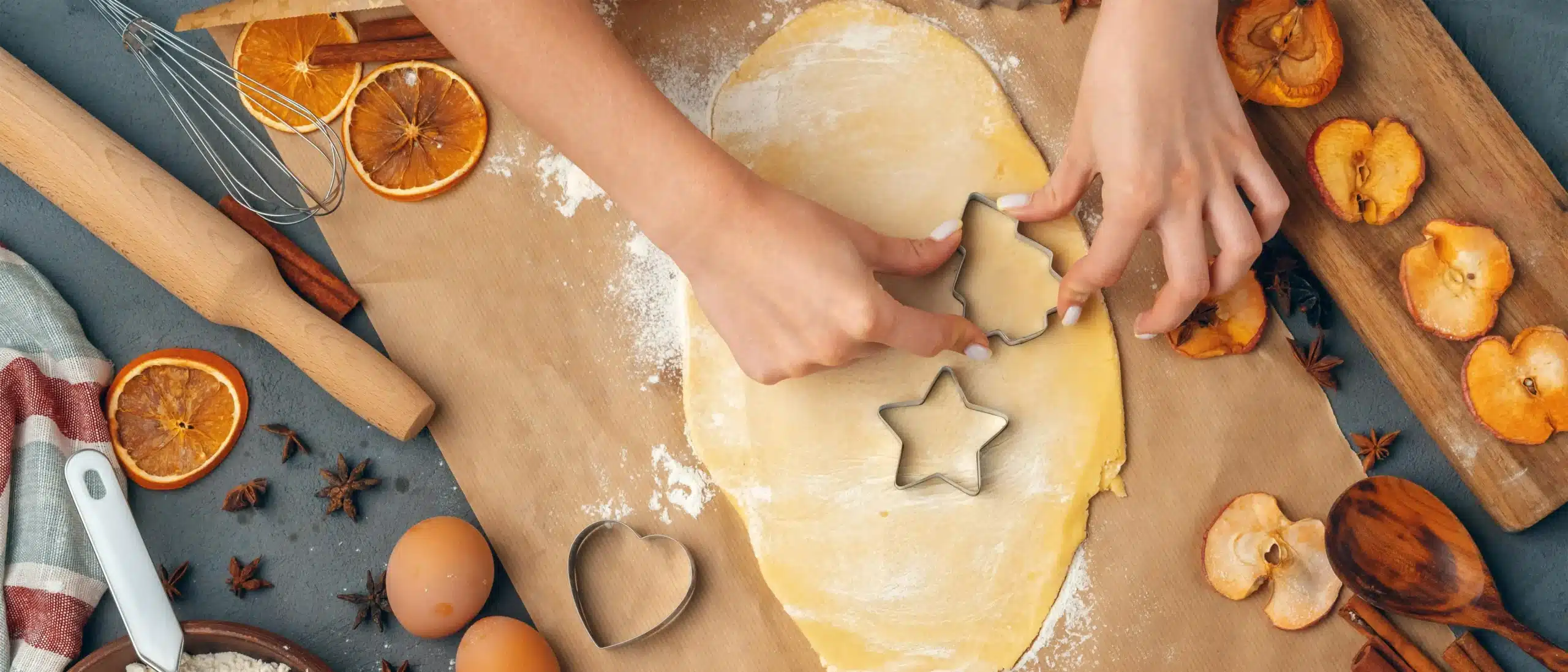For people who want to start in the world of culinary arts, deciding between a baking course and a pastry course is a big decision. The two fields are both creative, but relatively speaking, they deal with different techniques and career paths.
Breads, doughs, and savory items are usually a part of baking, whereas pastry arts focus on desserts, cakes, and intricate decorations. Knowing the difference between baking and pastry classes will direct you to follow your passion in line with your professional goals.
In this blog, we will walk through the crucial differences between baking vs pastry courses, career paths, and the right careers depending on your skills and interests, as well as what you see yourself doing in the near future.
Baking vs Pastry Courses (Curriculum Comparison)
Although both these courses come under the same culinary umbrella, there is a marked difference between baking and pastry courses, tools, and the way they are learned. Now, let’s see what each course covers in general:
| Aspect | Baking Course | Pastry Course |
| Core Focus | Breads, rolls, croissants, buns, and savory baked items | Cakes, tarts, mousses, plated desserts, entremets |
| Techniques Covered | Yeast fermentation, dough kneading, proofing, and baking temperatures | Cream whipping, sugar work, chocolate tempering, glazing |
| Tools & Equipment | Bread ovens, dough mixers, proofers | Piping bags, sugar lamps, moulds, pastry rings |
| Artistic Elements | Minimal – baking is more scientific and process-oriented | High pastry emphasizes aesthetics, plating, and design |
| Science vs Creativity | Focuses on ingredient ratios, time management, and consistency | Blends culinary science with creative expression |
| Example Modules (Whitecaps) | Sourdough techniques, viennoiserie, and commercial baking practices | Classic French desserts, chocolate artistry, modern entremets |
Whitecaps International School of Pastry is among a handful of institutes in India providing dedicated training paths for both baking and pastry. Their programs are designed to make sure that students are learning foundational techniques and are exposed to advanced practices in a real-world environment.
Career Paths: Baking vs Pastry Chef Careers
Both baking and pastry courses open up a number of career possibilities within the food industry. While this will vary based on the field of specialization and preferred environment, your path will be different.
Baking Course Career Options:
Baking course graduates can generally expect to find themselves in the following positions:
- Including Artisan Bakeries – specialising in sourdoughs, rustic loaves, as well as high hydration doughs.
- Hotel Bakeries, which cater to large volume production of bread and rolls.
- Baking muffins, bagels, focaccia, and sandwich loaves for café chains and quick service restaurants (QSRs).
- Many go into entrepreneurship and start their own local bakeries or online bread brands.
- Scaling recipes for mass production. Industrial/Commercial Baking Units.
The Cake Engineering Program from Whitecaps is one suitable for prospective bakers looking to make their skills a profitable business, teaching the basics of dough fermentation, viennoiserie, and artisan baking.
According to the U.S. Bureau of Labor Statistics, the job outlook for chefs and head cooks is expected to grow by 8% from 2023 to 2033. It’s faster than most other careers, and there remains consistent and high demand in the culinary industry.
Pastry Course Career Options:
After completing pastry-focused training, they go into:
- Crafting plated desserts, French pastries, and customized cakes as Patisseries & Boutiques.
- Preparing luxury desserts for guests around the world and global events for both Hotels & Cruise Lines.
- Specializing in Fondant, Sugar Work, and Edible Sculptures, Weddings & Event Cake Designers.
- Truffles, bonbons, and gourmet confectionery are what Chocolatiers & Confiseries make.
- Designing desserts for new café menu or F&B brands – product development.
Whitecaps Paris Patisserie Program is perfect for those who want to become a pastry chef or chocolatier and who are looking for advanced hands-on training in international pastry, sugar artistry, and modern dessert design.
Skills Required: Baking vs Pastry School
There are several critical skills you need to master before you understand the difference between a baking course vs pastry course and choose one. However, they involve both discipline and precision, and the environment and the daily responsibilities are very different.
Core Skills for Baking:
Baking is a career that is strongly focused on technical consistency and process management. You’ll need:
- Strong time management: Many baking processes require long proofing or fermentation times.
- Ratios and ingredient science: To know how to make bread, you have to know how flour, water, yeast, and salt interact in different conditions.
- Attention to consistency: The same quality must be maintained for bread and dough products on a daily basis.
- Physical endurance: Baking can be very physically taxing, especially in a high-volume setting.
- Multitasking: You must be able to manage multiple bakes and their respective timers, all while working with multiple pieces of equipment.
These are conveyed at Whitecaps through the Cake Engineering and bread modules. If you want to avoid some cake baking mistakes, you can also read this blog.
Core Skills for Pastry:
When it comes to the pastry side, creativity, presentation, and patience are key. You’ll need:
- Artistic precision: Visual detail is key, from mirror glazes to sugar flowers.
- Flavor pairing knowledge: Taste and appearance must be balanced by pastry chefs.
- Fine motor skills: Finesse is needed for piping, molding, and garnishing.
- Patience and control: The timing and the layering of many pastry techniques are delicate.
- Clean workspace management: Pastry kitchens are typically very small and tend to call for a high degree of organization.
Through immersive modules in plated desserts, sugar work, and entremet, students in the Paris Patisserie program at Whitecaps master these skills.
Baking vs Pastry Course: Which Should You Take?
According to Data USA, more and more students are opting for careers in baking and pastry arts. From 2021 to 2022, the number of graduates in Personal & Culinary Services grew slightly (up by about 2%) to 53,800. This is a pointer to rising interest and demand in such fields.
When it comes to the choice between taking the best baking and pastry courses, it is up to you to decide what works best for you based on your passion. Becoming a baker may not even be your intended career choice. But they are different not just in their offering, but in what they ask and give.
Choose a Baking Course if:
- You are interested in working with dough, fermentation, and yeast.
- You are quick to get interested in ratios of ingredients and temperature control.
- You like early hours and a structured, repetitive environment.
- Maybe your career goal is to open a bakery, or to work in bread-focused kitchens, or to scale up the production for a cafe or a hotel.
- You love focaccia, sourdough, and brioche as much as you love sweet bakes.
Choose a Pastry Course if:
- You know when something looks good on a plate and how to design a dessert.
- You are interested in chocolate work, sugar pulling, and layer cakes.
- You have always dreamt of working in fine dining restaurants, patisseries, or want to start your line of designer cakes.
- On daily tasks, you like to be precise, patient, and ready to be creative.
You aspire to become a pastry chef or a chocolatier, or you want to build a name through event or wedding cakes.
Factors to Consider:
- Personal interests: Are you into savory artisanal loaves or glossy mirror cakes?
- Career goals: What you are looking for when you are trying to be in hotel kitchens, boutique patisseries, or entrepreneurship.
- Work environment: Are you a lover of quiet pre-dawn baking or high precision dessert design?
- Creativity vs precision: If baking is lean, it’s consistent, pastry is dogmatic, and presentation is.
- Market opportunities: They both are in demand but need niche positioning.
And whatever your choice, Whitecaps International School of Pastry trains you to be the best.
Conclusion
If you’re interested in the science of bread or the art of desserts, pick the baking vs pastry course according to your passion and career goals. One of the two fields also promises opportunities in hotels, cafes, patisseries, and entrepreneurship.
Suppose you’re looking to hone your craft. In that case, programs such as Cake Engineering and the Paris Patisserie Program are available at Whitecaps International School of Pastry, led by some of the best international chefs.
Whether you fancy a professional culinary career, Whitecaps offers hands-on training and placement support to help you turn your culinary dreams into reality. Follow what excites you; your future in baking or pastry starts here.
Frequently Asked Questions
- What is the main difference between baking and pastry courses?
Bread and savory items constitute the focus of baking courses, while pastry courses focus on desserts and confections. - Can I pursue both baking and pastry courses?
Comprehensive programs such as the Excellence Diploma at Whitecaps do, in fact, include everything described above. - What career opportunities are available after completing these courses?
Bakers, pastry chefs, chocolatiers, and graduates can even open their establishments. - Are there any prerequisites for enrolling in these courses?
First of all, most institutions agreed that a basic education level is required. - How long do these courses typically last?
Course durations vary. For instance, Whitecaps offers a six-month Excellence Diploma Program.


